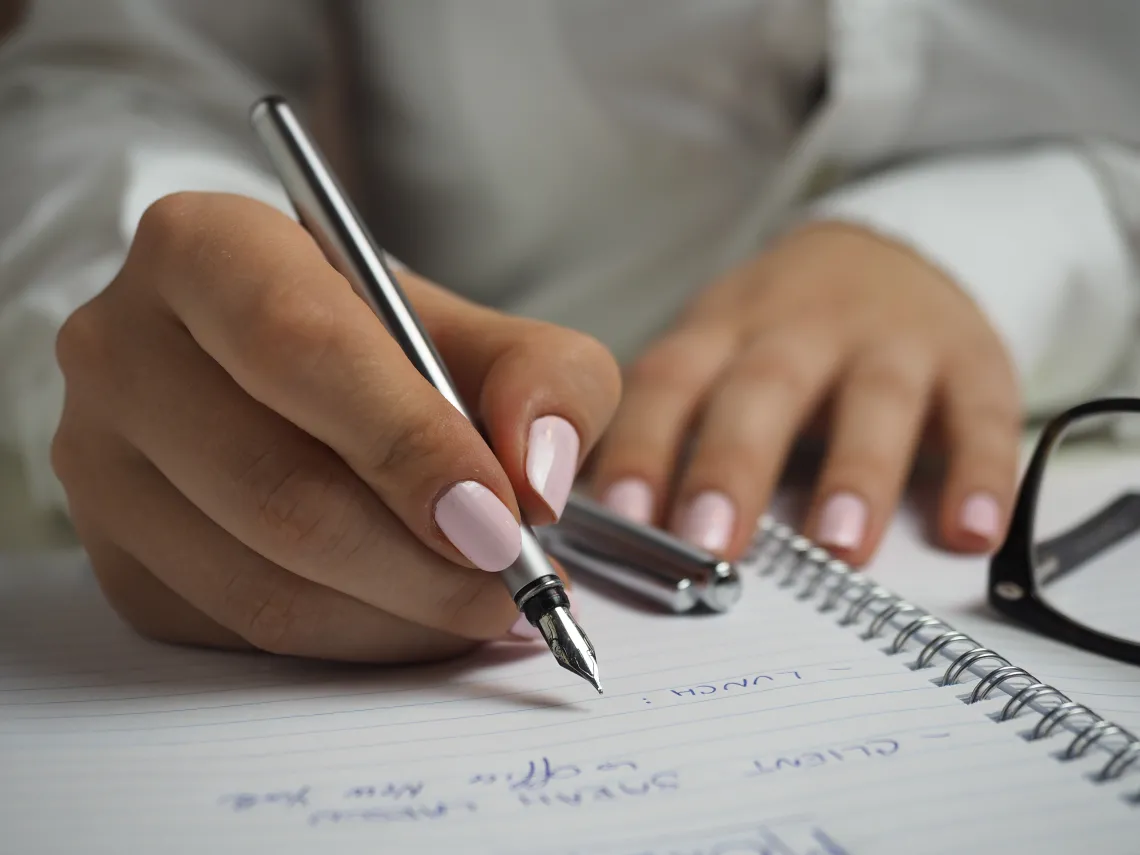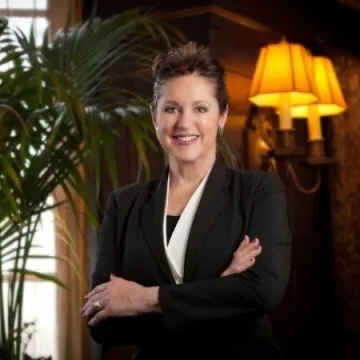Good Eye
Jacqueline Joseph, a longtime expert witness in forensic handwriting and document examination, shares her hunger for knowledge through a planned gift to the College of Social and Behavioral Sciences.

Stock Photo by energepic.com
Jacqueline Joseph ’67 came to graphology, the study of handwriting, to understand those closest to her: her parents, her boyfriend, her boss, herself. Before she became the only double board-certified forensic handwriting and document examiner in the Pacific Northwest and before her mentorships under noted forensic graphologists Andrew Bradley and Marcel B. Matley, she was just a person curious about other people.
Her early forays were into character graphology — what handwriting reveals about personality — and not into the discipline’s experimental (how one’s script alters because of intoxication or a broken pinkie, for instance) or forensic spheres. But it was to forensic work that Joseph eventually turned, addressing over and over the

Jacqueline Joseph early in her career
J. Joseph & Associates
question of identification: “Who held the pen?”
Patterns in scrawled letters, the curling arc of a capital “O” — clockwise or counter-clockwise — in a forged signature or graffitied threat: Joseph gave herself to such study.
“I was born with a good eye,” she says, adding, “To endure 30 years in the career, one has to have a fire in the belly.”
A good eye, a fire in the belly, and the self-direction to seek out the best mentors she could find all have made Joseph a fixture in the world of forensic document examination, with 48 publications and presentations to her name on subjects from tremor to opposite-handedness.
She has studied guest diaries from the Anne Hughes Coffee Room at Portland’s famed Powell’s Books, offering her opinion on whether an entry left in 1988 was pertinent to the search for the Unabomber, because it matched the cockeyed writing style of the prime suspect at the time. She has investigated the authenticity of a faded historical artifact linked to the Titanic: a 1912 wall calendar by a travel agency advertising the White Star Line, under which the hulking passenger ship sailed.
And she has served as an expert witness in court more than 80 times — though never on behalf of a person, only the pages before her. “I advocate for the document,” says Joseph, whose Portland, Oregon, business is called J. Joseph & Associates.
Joseph, through years in the courtroom spent helping others, has come to increasingly appreciate how vital the role of an expert witness is. To serve as an expert witness, she says, is to serve the cause of justice — for instance, when the document evidence may help to exonerate defendants at risk of wrongful conviction.
Joseph’s planned gift to the College of Social and Behavioral Sciences (SBS) will benefit students learning to offer expert-witness testimony. The Jacqueline A. Joseph Scholarship Endowment will provide scholarships to students in the department of communication at both the graduate and undergraduate levels. Students training as expert witnesses develop skill in public speaking, a tool transferrable across contexts.
Though the endowment focuses on expert testimony, Joseph also has chosen SBS as the recipient of her gift because graphology and its applications form, at their core, a behavioral science, reflective of who we are and how we live. Script, she says, is “the artifact of human movement.”
Born into a Midwestern Jewish family in 1945, Joseph moved to Tucson for college, both because her parents were drawn to the state of Arizona, taking the family to the desert in winter, and because of the University of Arizona’s flourishing Jewish population, including the Sigma Delta Tau sorority Joseph eventually joined. She studied secondary education, with an emphasis on public speaking and dramatic arts, and co-chaired an all-campus Vietnam War blood drive, collecting more than 1,500 pints in collaboration with the American Red Cross. Although Joseph didn’t learn her forensic specialty at UArizona, her studies laid the groundwork for her later career.
Today, Joseph — a self-described “sponge for knowledge” — says that, with encouragement, she could have trained to be a surgeon or lawyer, like many of her male relatives. But, she says, “There was no family push for that type of career.”
Entrepreneurship, nonetheless, was in her blood. Her maternal great-aunt, Frances Heffernan, founded a luxury clothing boutique for women in Winnetka, Illinois, during the Great Depression; the shop still stands, near the north shore of Lake Michigan. Twelve years earlier, in 1920, her paternal great-uncle, Edgar J. Schoen, had “set out his own shingle” in Chicago, starting a law practice. And another family member, Louis Joseph, founded Chicago’s Parisian Novelty Company-today called Matchless Parisian Novelty — in 1898, manufacturing pinback and campaign buttons, alongside advertising novelties such as vanity cases for women’s makeup.
“Most of the people in my family were self-employed,” Joseph says.
In 2020, during the pandemic, Joseph continued her path of self-directed learning and growth, completing a professional graduate certificate in business communication through Harvard Extension School. The coursework, she says, focused on rhetoric and public speaking, skills she also has honed by participating in Toastmasters International, a global nonprofit promoting qualities of leadership.
Joseph notes that self-employment is not the only family tradition she’s sustained; so, too, is philanthropy in higher education. The Joseph family previously set up an endowment at Harvard, where others in her line have also studied.
When asked what she’ll do next, Joseph says that she is specializing in deciphering illegible handwriting to break codes of mystery. In addition to finding out “who wrote it,” she says, she will determine “what the handwriting says.”
—Matthew Morris
Leave a Legacy
Connect with the University of Arizona Foundation's Office of Gift Planning to learn more about leaving your legacy. Call 520-621-1993 (toll-free: 800-845-4877 or email plangift@al.arizona.edu.

